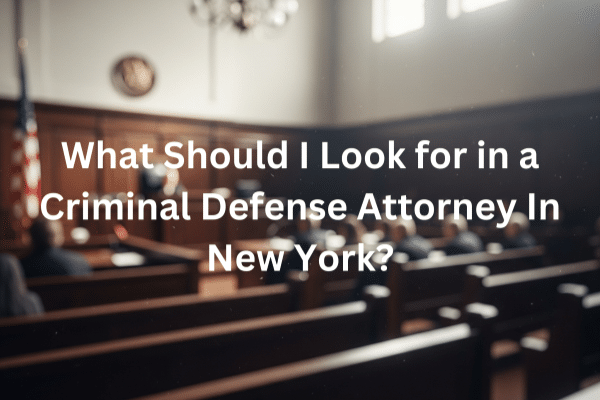

Facing a criminal charge can feel like your entire future is hanging in the balance. The attorney you choose will shape how the facts are investigated, how negotiations unfold, and if necessary, how persuasively your story is told before a judge and jury. Below are the qualities that separate an average lawyer from the ally you really need when the stakes are highest.
New York’s Penal Law and Criminal Procedure Law differ in crucial ways from neighboring states, and Long Island’s two counties—Nassau and Suffolk—each have their own courtroom rhythms, filing deadlines, and judicial preferences. A top-tier defender stays ahead of legislative updates, appellate decisions, and local administrative rules. They also know the nuances of how plea offers are typically structured in local district courts, when particular judges are open to alternative sentencing, and which programs (drug treatment, veteran diversion, youthful offender status) are realistically available in your venue.
Everyone advertises “aggressive” representation, but the real measure is a documented record of reduced charges, dismissals, and acquittals across a range of offenses—DWIs, assaults, larcenies, drug crimes, and white-collar matters. Look for concrete case outcomes and, if possible, client testimonials that verify them. An attorney who routinely converts felony counts into non-criminal violations has demonstrated the negotiation skill and legal creativity you want on your side.
Reputation travels fast in Long Island’s tight-knit legal community. A lawyer who has spent decades earning the respect of assistant district attorneys and court staff can often secure faster discovery, candid plea discussions, or an early indication of how a judge might rule on a sensitive motion. These professional relationships aren’t shortcuts to justice, but they do grease the procedural wheels and can make an enormous difference when time, evidence, or resources are limited.
Legal bills shouldn’t be a mystery. A trustworthy defender explains—up front—how retainers, hourly rates, flat fees, and expert-witness costs work. They give you a written agreement and stick to it. Unexpected motions or additional court appearances happen, but you should never be surprised by an invoice. Clarity on costs allows you to focus on your case instead of your bank account.
Great defense work is rarely solo work. Investigators, forensic toxicologists, accident reconstructionists, mental-health professionals, and electronic-discovery consultants can all play pivotal roles. Your attorney should have access to a reliable team and know exactly when to deploy them. Thorough investigation can uncover body-cam gaps, chain-of-custody errors, or witness biases that upend the prosecution’s narrative.
No two arrests or defendants are identical. A misdemeanor shoplifting charge for a high-school senior demands a different approach than the same charge for a licensed nurse. You deserve counsel who digs into the personal context: prior record, immigration status, career goals, family obligations. By tailoring discovery requests, motion practice, and plea negotiations to the bigger picture of your life, a savvy lawyer protects more than your legal record; they protect your future.
The criminal process is stressful because it often feels opaque. An attorney committed to regular updates—phone calls returned within a business day, emails summarized in plain English, texts when there’s breaking news—allows you to sleep at night. Detailed explanations of next steps and likely timelines turn anxiety into informed collaboration.
If trial becomes unavoidable, technical knowledge must merge with persuasive delivery. Juries respond to authentic confidence, ethical conduct, and the ability to translate legal jargon into relatable human themes. Watch your prospective lawyer in action if possible; many arraignments and preliminary hearings are public. A commanding yet respectful style can resonate with both judge and jury when it matters most.
Choosing a criminal defense attorney is about more than credentials on a website; it’s about finding a trusted guide who understands Long Island’s legal landscape and has the tenacity to champion your side of the story. By insisting on deep local knowledge, proven outcomes, transparent fees, responsive communication, and a personalized approach, you position yourself for the best possible defense.
If you or someone you love is facing a criminal charge anywhere in New York, call Ed Palermo today for a free, confidential consultation and put decades of experience in your corner.